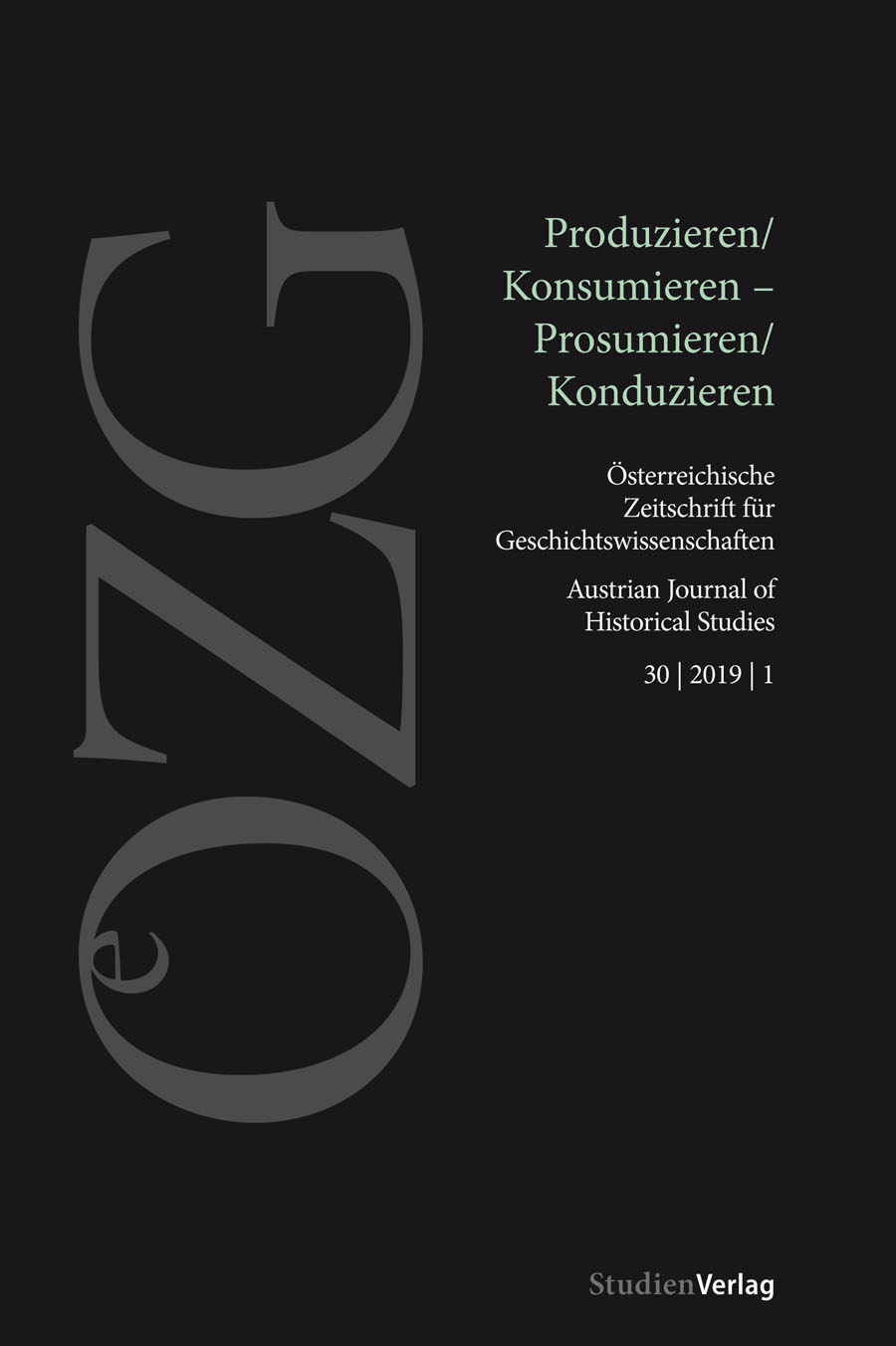Zwischen Konsumieren und Produzieren
Dinge und ihre Nutzer*innen im 18. Jahrhundert
DOI:
https://doi.org/10.25365/oezg-2019-30-1-6Schlagworte:
prosumption, urban consumption, clothing, second-hand, recycling, materiality, household economyAbstract
Some scholars have argued that prosuming was a central element of everyday consumption before the nineteenth century. This view, however, is based on rather general assumptions that follow a simple modernist narrative, which suggests that prior to industrialisation households were largely self-sufficient and generally lacked market access. When considering sources such as ego-documents, inventories or account books, a more differentiated picture emerges: In eighteenth-century households, practices of prosuming could be found alongside the widespread use of non-domestic labourers. Decisions were made in a situative way and were often bound to the specific goods involved. Prosuming was more unlikely when tasks required specific skills and tools or when cheap labour was available.


